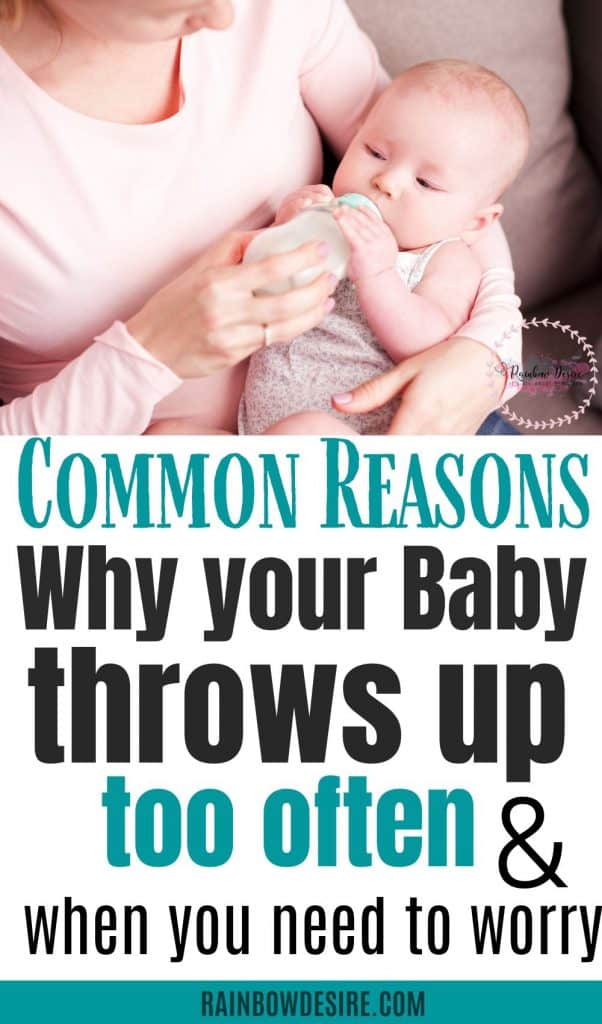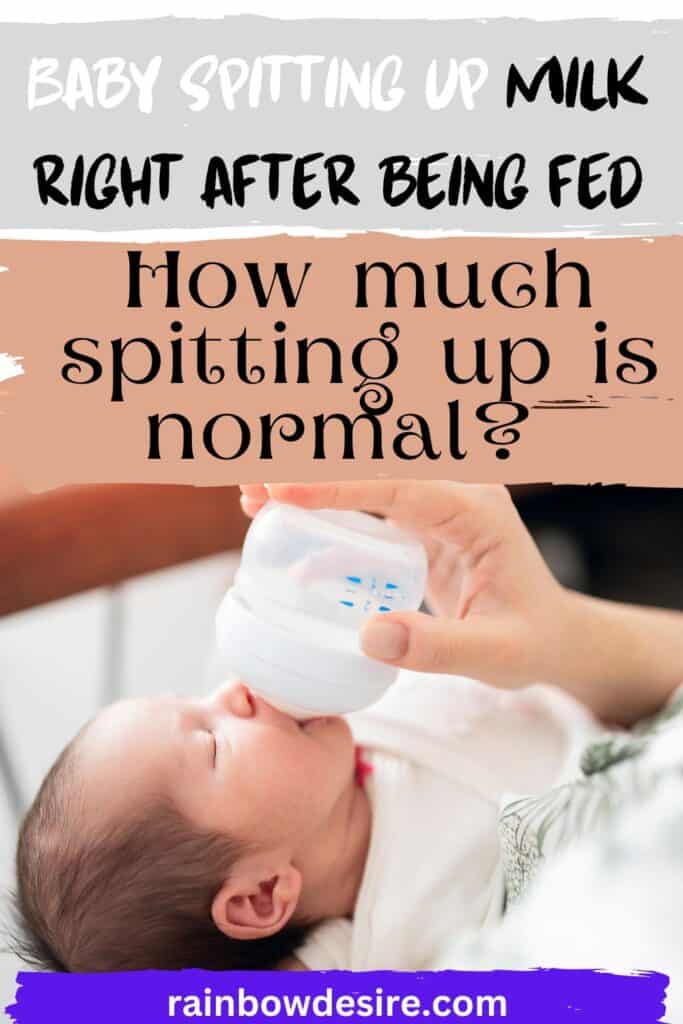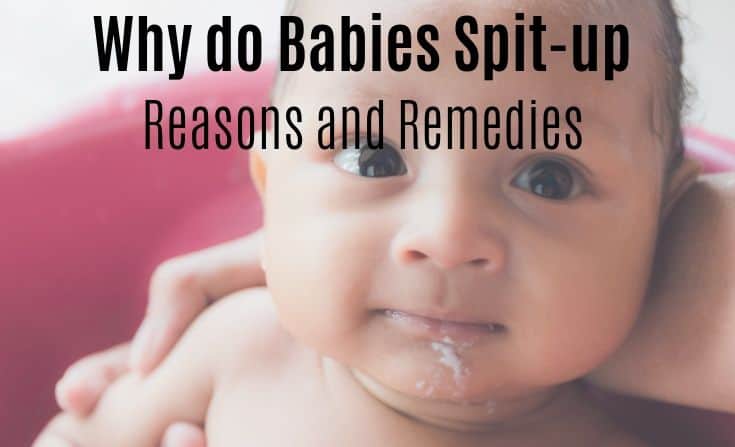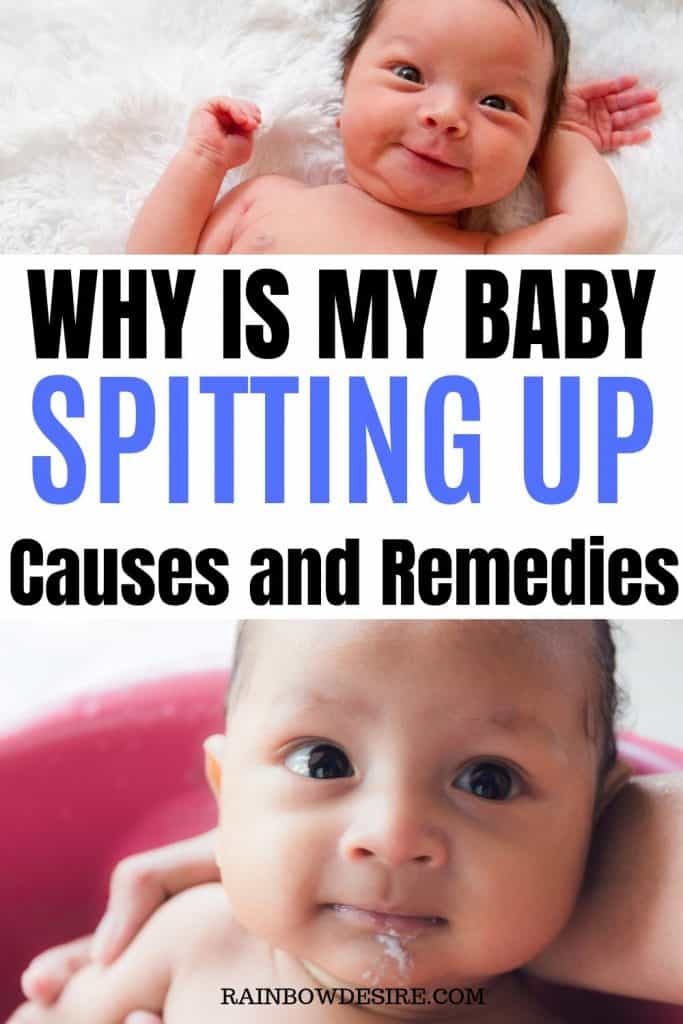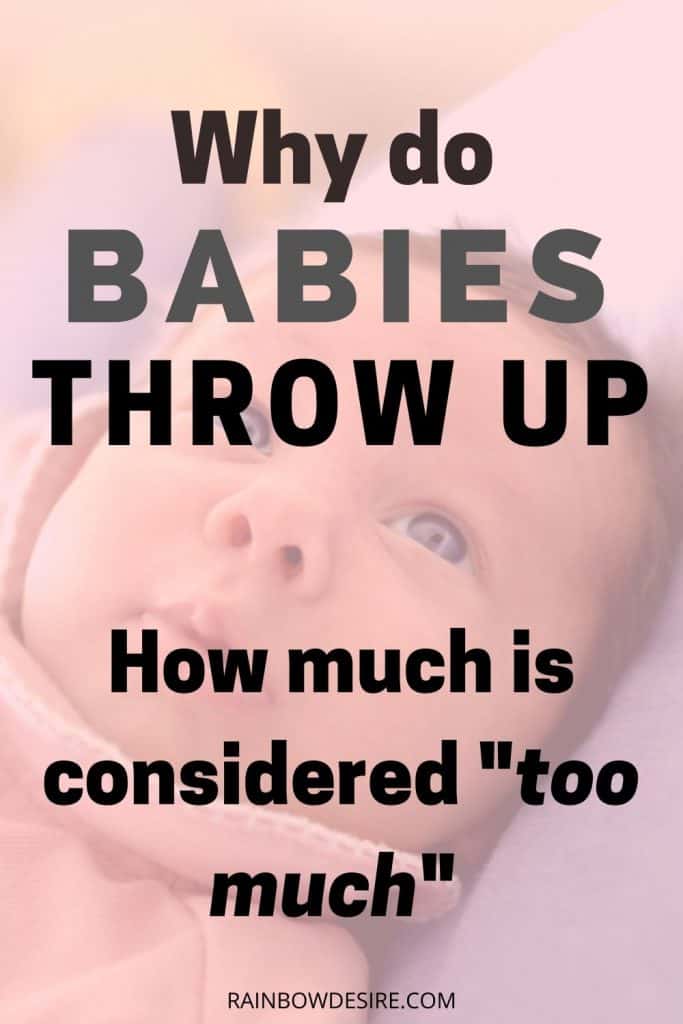Is your baby spitting up way too much? Sometimes, it may seem like the baby has nothing left in her stomach after an enormous throw-up, which makes the mom super worried. Spitting up is common in babies; therefore, most babies keep throwing up for about 5 to 6 months, which is considered normal.
Spitting up may concern first-time parents, who feel the baby cannot digest milk. Read on, and find out why babies spit up and how you can help babies keep food inside instead of throwing up.
This post may contain affiliate links. Please read our disclaimer for more information.
Why do babies spit-up after being fed
Breastfeeding babies sometimes throw up, although breastmilk is gentle and easy on digestion for newborn babies.
The most common reason for babies to spit up is intolerance; it could be intolerance to formula or in very rare cases, breastmilk. It would help if you ruled out the reason.
Since it is normal for newborns to spit up like a whale, you need tons of burp clothes, highly absorbent ones. And you need a sufficient stash around the house to prevent smelly sofa carpets, especially for formula-fed babies.
1. Formula intolerance
It could be formula intolerance, and your baby is not digesting it well, which may take some time to adjust. However, if you are concerned due to frequent spit-ups after every feed and pretty big ones, then you might want to discuss it with your pediatrician and consider changing the formula.
You may start formula for sensitive stomachs once your baby turns a few months old. If the baby is still not being able to digest, you can change the formula brand.

2. Signs of allergies
For breastfeeding babies, you must rule out any signs of intolerance or allergic reactions to something you eat. Also, when you start feeding solids to your baby, she cannot digest some specific types of food. For example, eggs, dairy, peanuts, pine nuts, wheat, and walnuts, etc. Eating too much chocolate could cause frequent throw-ups when you are breastfeeding.
Although this concept is not backed by science, some mothers, if not all, believe that spit-up happens due to intolerance to a specific food transmitted through their breast milk.
Watch for signs like bumps on the body, skin rash, and frequent spit-ups like fresh milk.

3. Baby is Lying down on her back after being fed
If you lay your baby on her back right after feeding, this would most likely result in a spit-up – until your baby is a few months old and manages to move independently.
You can use a bouncer to keep your baby slightly elevated after feeding or wear your baby in a baby wrap for serious reflux issues.

What are the Remedies on how to avoid spit-up?
These simple and easy-to-follow steps may help your baby not to spit up.
- Position your baby’s head higher than the rest of the body when your baby is eating.
2. Step up your burping efforts. Learn how to burp properly or when the baby has gas issues.
3. Feeding smaller amounts more frequently may reduce spitting significantly.
4. If you are bottle-feeding, feed half of it, burp, and then feed another half.
5. Position upright for 20 to 30 minutes after every meal. Make sure the baby has burped during this time.
6. Overfeeding might lead to a huge spit up as well. In a few cases, babies tend to overeat, or the oversupply of milk may cause a huge throw-up, as moms cannot figure out how much the baby is eating.
As per the baby’s tendency about how often she is throwing up, you may want to consider pumping and then bottle feed.
Using Haaka is a great way to manage milk supply and avoid breastmilk waste due to leakage while the baby is nursing from the other side.
Using gas drops may help with burping or gas releasing trouble for babies.
What is the difference between Vomit and spit-up
There are two things to keep in mind:
Vomiting is different than spitting up.
The definition of spit-up: an easy flow of stomach content through the mouth that may or may not accompany a burp.
A typical definition of vomit: the forceful flow of stomach contents through the mouth.
For most babies, spitting up is simply the result of not a fully developed muscle on top of the stomach. This muscle is called the lower esophageal sphincter, which allows food and liquids to enter the stomach and keep it there.

How should a spit-up look like
Well, one thing is for sure, curdled spit up means your baby’s stomach has started processing food and it will get better with time.
On the flip side, there is a possibility to experience a spit-up like fresh milk even after an hour of feeding.
Just a gentle reminder: By food, it means milk; that’s all your newborn could eat for this newborn stage.
Word of assurance
Besides how a huge spit-up looks like, be sure that your baby has not lost everything she ate in a spit-up.

Gerd – Gastroesophageal reflux disease
This disease is equivalent to heartburn. Stomach contents make their way back up into the esophagus, sometimes causing discomfort. If that is the case, your baby needs the right evaluation and potential medical treatment.
Vomiting
Your baby may vomit if she has a particularly sensitive gag reflex, or you have forceful milk let down while breastfeeding. Also, when she happens to overfeed.
If vomiting persists and makes you worried for some reason, do not hesitate to get it evaluated with your pediatrician.
Watch out for any signs of infection, fever, blood in the poop, diarrhea, or excessive fussiness and gassiness.
Watch out for any dehydration or lethargy signs due to vomiting, such as listed below, and call your pediatrician right away.
- Less pee
- Dry mouth
- Doughy skin
- Sunken eyes and Fontenelle
- Weight loss
If an infant vomits, most or all of the feed, 2 or more consecutive feedings in a row, this could be a sign of a potentially more serious issue. Contact your doctor to get a timely medical evaluation.
Gagging and sputtering
Gagging is a baby’s natural way of preventing food from going in the wrong way. The gag reflex is good for the baby. If your baby is gagging, have her sit upright, pat her back, and face down a little to keep all that saliva running out of her mouth.
Rest assured that babies tend to settle down on their own after these episodes of gagging reflux.
Remember, every baby is developing at her own pace, and it might take a month or so to settle. Do not beat yourself up for something that is considered normal as per your doctor’s advice.
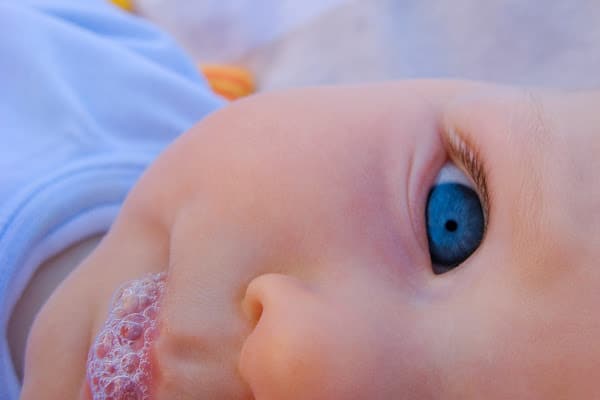
Why is my baby spitting up saliva?
Sometimes, you may notice the baby spitting up Saliva (no milk) just making clear bubbles on and off throughout the day. Well, it may be an old wife’s tale, but I found it true in my case.
Your baby is ITCHY!
Yes, you heard it right. Something might bother your baby or feel itchy where she can’t practically scratch or reach.
Watch out for any signs of dryness all over her body or face, any rash, or a cradle cap.
Here is how to treat cradle cap fast.
Newborn head handling – how to look after skincare in newborns.
If your baby feels itchy or spitting up saliva too often, use Curel Itch defense lotion that works best for itchiness.
Learn More
Effective ways to solve gas issues in babies.
Food that helps moms increase milk supply.
Breastmilk or formula – when is it okay to start a combination feed.
